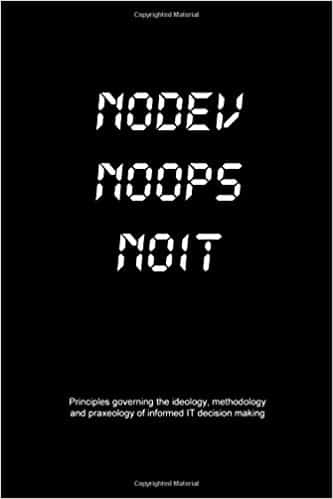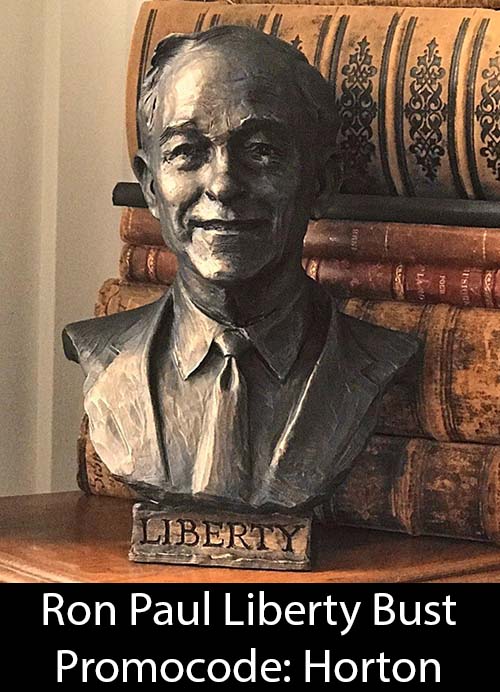by Lucinda Franks, Talk Magazine, Issue 1, Sept. 1999
As published in The Observer (UK) Aug 8, 1999
(No one cares about these degenerates’ relationship, it’s just that there’s an important point about Kosovo in it.)

Page 170
HILLARY CLINTON, head covered in a flowing chador of golden silk, stands barefoot outside the Citadel of Cairo. The chants of the Muslim call to prayer echo through the winding streets. Quietly declining the slippers set aside for privileged visitors, she walks barefoot into the ancient mosque like a common Egyptian woman, her head bowed, her face turned away from photographers. It is March. She has traveled thousands of miles, fought historic battles, and been badly burnt. Her private life has turned into a public space where nothing is sacred. Her husband has just narrowly escaped becoming the first President in the history of the United States to be removed from office. The only people who have not lashed out at him in public are those he has hurt most deeply, his wife and their daughter, Chelsea.
Now, on a state visit to North Africa, the First Lady seems disheartened. `She is giving off lonely vibrations,’ says a State Department official. `Look at her eyes. I think she has been deeply, deeply hurt.’ Hillary and Chelsea share a hotel room, watching movies and discussing the next day’s speeches. They call Bill, who keeps Hillary up to speed on Kosovo. Hillary is unequivocal about the American response. `I urged him to bomb; I supported him,’ she tells me later. `You cannot let this go on at the end of a century that has seen the major holocaust of our time.’
The phone calls – a nightly feature of this Middle East trip – seem to have helped bring the first couple closer together than they have been since before the Lewinsky scandal broke. `I think she fell in love with him again when she came here,’ says the Moroccan Minister of Foreign Affairs, Mohamed Benaissa. Hillary’s chief of staff Melanne Verveer tells me that `as the President has tried to make up for what he has done, we’ve slowly seen a physical passion come back into their lives. And it’s not just for show. I’ve seen them together when no one is looking. And when they start talking it’s electric. The power of ideas positively ignites them.’
THE RAPPROCHEMENT TOOK a while. `Hillary barely spoke to Bill from the time of the stain on the dress in August right up until the trip to North Africa,’ one of her closest aides reports. The estrangement was not only between Bill Clinton and his wife but between the President and his most trusted adviser. `He suffered terribly from Hillary’s exclusion,’ adds her longtime friend Kathie Berlin. `If he had trouble keeping focused, as people say he did, it was because she was no longer part of the equation.’ The mounting crisis left the President increasingly distracted. The week before he confessed to the country that he had lied about his affair with Monica, he spent long hours in the White House solarium obsessively playing cards with his friend Harry Thomason, sometimes until two or three in the morning.
But as the scandal festered, the person fighting most fiercely in defence of the President was his estranged wife, explaining to Democrats in Congress with legalistic dispassion why her husband’s actions, while deplorable, were not impeachable. `She was very effective and certainly won him the support of the Democratic caucus,’ says Congresswoman Nita Lowey. In private, though, the First Lady was devastated. `She acted like someone had died,’ says Bernie Nussbaum, another long-standing friend and mentor. `It was clear that something dramatic had to be done to change their lives, to save their marriage.’
That something appears to be Hillary’s run for the Senate. The possibility was first discussed with Hillary last autumn and `the President was right in there, cheering her on – before she even knew she was on the team,’ Congressman Charles Rangel of New York recalls. “You could see the guilt written all over his face. Any man would do anything to get out of the doghouse he was in.’
Not long ago, the notion of Hillary running for office would have seemed far-fetched. She had always regarded Washington with suspicion. When she arrived at the White House, her blunt manner and stubborn idealism cost her repeated defeats. She seemed to have a tin ear for politics in the capital. Her appointments were shot down. Her health care reform plan was shipwrecked. By 1995, the co-President was no longer even attending policy meetings. But by last October, as her husband was falling from grace, Hillary was resurrected. More popular as an injured party than she ever was as an equal party, she hit the campaign trail.
I first met Hillary two summers ago at a beach party on Martha’s Vineyard. She wore jeans and a plain green pullover. She said she and Bill were enjoying the rare privacy, the pleasures of bare feet and long empty beaches, and stacks of books next to their twin lounge chairs. `I was cutting Bill’s grapefruit this morning,’ she told me, `and we had the best idea we ever had about day care, and all of a sudden there’s this flapping at the window and it’s a seagull – a seagull at our window!’
This May, on Air Force Two heading for London from Belfast, I am with a different person. Over the past 18 months, she has shed pounds and any hint of matronliness. She has a chic bob and a wardrobe crisply upgraded through the ministrations of Oscar de la Renta. Though she hates playing the victim, public sympathy has trans muted her from a scary political termagant into a woman widely admired for her courage. Her ordeal has given her a certain glamour, almost a regal look.
Her husband has noticed this, with some surprise, since Hillary was typecast in their marriage as the brain, the anti-beauty. `Doesn’t she look beautiful?’ he has been heard asking friends. In May, as I join the First Lady for an interview, I catch a glimpse through an open door of the still-rumpled blue sheets in her private quarters, and realise that she has almost literally been dragged from bed. The imprint of her pillow is still on her cheek.
Someone offers her tea. `I need it intravenously,’ she murmurs. She is on a cycle of caffeinated or sugary drinks – anything to keep her awake. She has made 12 appearances in two days. I am impressed that despite it all she looks better than ever. When I pay her the compliment, she laughs, `I never think about it as long as I’m healthy. I know I’m not Miss America.’ At the first mention of her emotional health, however, she goes on full alert. `Personal feelings are not a useful way of judging. Watching people is. That is how I judge people – by their actions.’ She sips her tea and loosens up a bit, so I ask her how she had made it through everything she faced.
`I think I survived because of a combination of soul-searching and relying on friends, the support of people who give advice, religious faith, long and hard discussions. This,’ she says, alluding to her husband’s infidelity, `has received an unprecedented amount of attention. Everybody has some dysfunction in their families. They have to deal with it. You don’t just walk away if you love someone – you help the person.’
She turns to me now with a startling intensity. `I don’t believe in denying things. I believe in working through it. Is he ashamed? Yes. Is he sorry? Yes. But does this negate everything he has done as a husband, a father, a President?’ She elaborated later: `And what is so amazing is that Bill has not been defeated by this. There has been enormous pain, enormous anger, but I have been with him half my life and he is a very, very good man. We just have a deep connection that transcends whatever happens.
`Bill has been subjected to so much abuse,’ she continues. `He doesn’t make any excuses for what he did. But the reaction was unprecedented and harmful to the country I think it’s a real disservice, the way we sort of strip away everybody’s sense of dignity, of privacy. People need support, not disdain.’ `And you know we did have a very good stretch,’ she adds later, referring to the period after Gennifer Flowers. `Years and years of nothing.’ And how have they repaired their connection this time? `We talk. We talk in the solarium, in the bedroom, in the kitchen – it’s just constant conversation. But we have had to work this out in tandem with everything else happening around the globe.’ She gives a tired smile. `We like to lie in bed and watch old movies – you know those little individual video machines you can hold on your lap?’
In this interview and other conversations, I refer to her husband’s sexual conduct as `an addiction’, and Hillary doesn’t correct me. But when I finally ask directly if she thinks of it this way, she demurs. `That’s your word. I would say `weakness’. Whatever it is, it is only part of a complex whole.’
THAT WHOLE IS something she still admires and defends. Hillary points out that her husband’s latest infidelity occurred after the deaths of his mother, her father, and their old friend Vincent Foster. Then there was the shutdown of government. `He couldn’t protect me,’ she says, skipping over the trysts themselves, `and so he lied. `My husband is a very good man,’ Hillary insists. `They are jealous of him. Yes, he has weaknesses. Yes, he needs to be more responsible, more disciplined, but it is remarkable given his background that he turned out to be the kind of person he is, capable of such leadership Can you imagine what it took for him to go on after losing everything, to still get up each morning and do your job? You know in Christian theology there are sins of weakness and sins of malice, and this was a sin of weakness.’
I tell Hillary I have read his mother’s autobiography, in which she wrote about the atmosphere of alcohol, violence and chaos that forced her son to be the man of the house while he was still a child. Hillary leans over and says softly, `That’s only the half of it. He was so young, barely four, when he was scarred by abuse that he can’t even take it out and look at it. There was terrible conflict between his mother and grandmother. A psychologist once told me that for a boy, being in the middle of a conflict between two women is the worst possible situation. There is always the desire to please each one.’
I ask her about the widely held view that the Clinton marriage is more of an arrangement, that she chose Bill Clinton and stuck with him for her own benefit. `Yeah, right!’ she scoffs. `Like I picked him – this big, gangly guy with goldish hair looking like he just came off the boat, like some Viking.’ I gained an insight into her much-tried loyalty as she spoke with emotion about her mother, Dorothy Rodham, a product of divorce who was put on a cross-country train at the age of eight with her three-year-old sister.
`My mother never had any education,’ Hillary told me. `She had terrible obstacles, but she vowed that she would break the pattern of abandonment in her family and she did.’ Dorothy’s daughter – a woman who does not advocate divorce, who counsels teenage sexual abstinence, and who stays with a man when no one can understand why – has learnt her mother’s lessons well.
In a later conversation, I ask what will happen with Bill and the marriage when she runs for the Senate. `He’s a grown-up,’ she says firmly. `He has to do this himself. He’s responsible for his own behaviour whether I’m there or 100 miles away. You have the confrontation with the person and then it is their responsibility, whether it’s gambling or drinking or whatever. Nobody can do it for you.
`He has been working on himself very hard in the last year,’ she tells me. `He has become more aware of his past and what was causing this behaviour.’ Public office has prevented the President from seeking therapy, but friends have told me they expect him to do so after leaving the Oval Office. Does she believe, I wonder, that you don’t leave someone you love under any circumstances? `You have to know the real quality of the person,’ she says thoughtfully. `You have to be alert to it, vigilant in helping. I thought this was resolved 10 years ago. I thought he had conquered it; I thought he understood it, but he didn’t go deep enough or work hard enough.’
`What’s the part of the Bible that deals with this?’ she had asked at one point.
`Corinthians?’ I suggested.
`Love endures all things? No, I love that, but I was thinking of when Peter betrayed Jesus three times and Jesus knew it but loved him anyway. Life is not a linear progression. It has many paths and challenges. And we need to help one another.’ `And it is love, isn’t it?’ `Yes, it is,’ she said. `We have love.’















